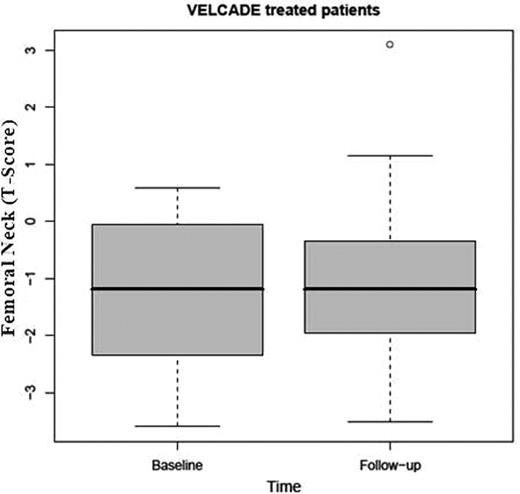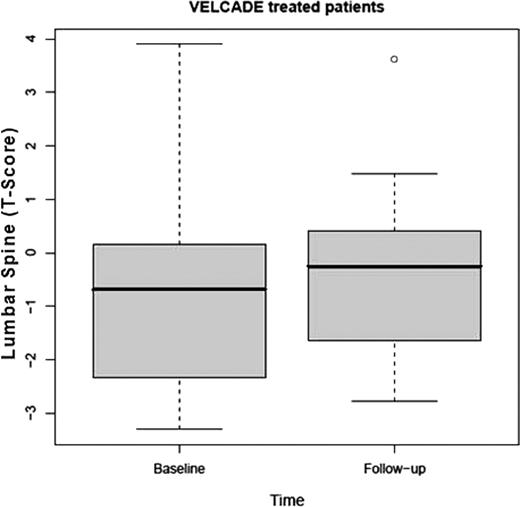Abstract
Abstract 4989
Bone disease is present at diagnosis in almost all patients with multiple myeloma (MM) and can impact substantially on patient morbidity and quality of life. Decreased bone mineral density is also observed not only in MM but also in patients with monoclonal gammopathy of undetermined significance (MGUS). The pathogenesis of bone disease in MM is complex. The activity of proteasome inhibitor bortezomib has been linked to increased bone formation and osteoblastic activation. Evidence from the available clinical data indicates that bortezomib has a positive impact on bone health in MM and demonstrates a bone anabolic effect.
We analyzed retrospectively 53 patients with MM and 16 with MGUS who have completed bone density at least at diagnosis. 21 patients have completed two bone density (3 MGUS and 18 MM). The bone density was obtained in all patients at baseline and in 16 patients repeated after bortezomib treatement with a median time of bortezomib exposure of 6 months. We analyzed T-score values at lumbar spine and at femoral neck.
With a median age of 66 years, 41 male and 28 female were analyzed. At baseline the mean lumbar spine T-score of all subjects and of 16 MM treated with bortezomib was -0.50 and -0.76 respectively. At baseline the mean femoral neck T-score for all subjects and for 16 MM treated with Bortezomib was -1.56 and -1.31 respectively. The baseline mean lumbar spine T-score for MGUS and MM was -0.71 and -0.43 respectively. The baseline mean femoral neck T-score of MGUS and MM was -1.61 and -1.54 respectively. In the group of 16 patients treated with Bortezomib we observed from baseline a change in lumbar bone mineral density T-score of 0.36 and at femoral neck bone density T-score of 0.25.
These data show that patients treated with proteasome inhibitor showed moderate increment in bone mineral density at lumbar spine and at femoral neck.
No relevant conflicts of interest to declare.
Author notes
Asterisk with author names denotes non-ASH members.



This feature is available to Subscribers Only
Sign In or Create an Account Close Modal